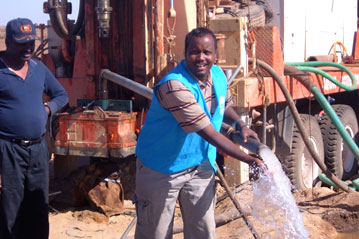UNHCR optimistic about meeting water needs of refugees in Ethiopia
UNHCR has always faced difficulties ensuring that refugees in eastern Ethiopia have enough water, but is optimistic that new projects will solve the problem.
ADDIS ABABA, Ethiopia, April 2 (UNHCR) - Over the past two decades, UNHCR has helped more than 600,000 Somali refugees in the eastern lowlands of Ethiopia. Providing them with enough water has always been a problem, with the UN refugee agency facing funding shortfalls, meagre and difficult to access underground reserves, and competition from locals for the scarce resource.
That's as true today as it was in 1991, when Somalia started disintegrating after the fall of the Siad Barre regime and people began fleeing. Most of the refugees eventually returned home, with just 16,000 remaining in Kebribeyah camp. But renewed conflict in Somalia has led to fresh influxes, prompting UNHCR to open the Aw Barre and Shedder camps in 2007 and 2008 respectively.
Under UNHCR's emergency guidelines, a person needs at least seven litres a day to survive and 20 litres a day to ensure their well-being and good health. Currently, that minimum standard of 20 litres is not being met in any of the three camps, but UNHCR believes that projects now under way should ensure that this target is reached and that access to water outlets is improved.
To meet the needs of Kebribeyah, the former Hartisheik camp and local communities, UNHCR in 2004 opened a pipeline to transport water from the well watered Jarar Valley, some 20 kilometres away.
But, as UNHCR Representative in Ethiopia Moses Okello noted, "Even this huge project does not guarantee an adequate supply of water to every family in the camp. Technical problems, and the high cost of managing the system, mean occasional failure to meet the minimum daily standard of water."
To resolve this problem, the UN refugee agency and the Ethiopian Electric Power Corporation have been working to connect the Jara Valley water supply system to the national electricity grid, which will make it cheaper to power the system than using fuel-guzzling generators. Okello believes this will solve many of the problems related to running the facility.
Meanwhile, to meet daily needs in the Aw Barre and Shedder camps, UNHCR had to truck large quantities of water from a nearby town, drill boreholes and construct a distribution network to ensure that refugees did not have to go far to get access to water.
Okello said that thanks to special funds made available for water and sanitation projects by UN High Commissioner for Refugees António Guterres, "We have been drilling and interconnecting half a dozen boreholes in the two camps. So far we have managed to provide a daily average of 12 litres per person in the two camps."
It is a work in progress. But Okello said he was optimistic that the minimum standard per person of 20 litres a day would be achieved in all three camps once the various water projects had been completed.
Somali refugee Rahma Mohammed Jamale, who fled to Ethiopia to escape conflict in Mogadishu, was one of the first residents of Shedder camp when it opened in May last year. She said it was initially tough finding enough water for herself and her six children.
"We had only two water points for a whole zone and that meant queuing up for hours to get a jerry can of water," she said, adding that the situation was much better but more work was still needed to increase the water supply for the camp's 6,600 refugees and Ethiopians living nearby.
Jamale said the improved water situation meant that children in the camp were spending more time in school and less time lining up for water. "But for this positive development to be sustained, it is up to us refugees to guard the system against misuse," she added.
By Kisut Gebre Egziabher in Addis Ababa, Ethiopia
Related news and stories
Thousands of newly arrived Somali refugees in Ethiopia relocated to new settlement
Samira's Story
Drought brings life-threatening food shortages for refugees in Ethiopia
100,000 new Somali refugees arrive in Ethiopia in the past month, UN and partners are calling for urgent funding
UNHCR teams and partners rush assistance to some 100,000 newly arrived Somali refugees in hard-to-reach area of Ethiopia
As the Horn of Africa drought enters a sixth failed rainy season, UNHCR calls for urgent assistance
-
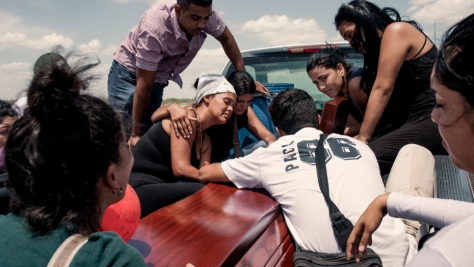
A final resting place for Venezuelans in Colombia
17 Mar 2021 -
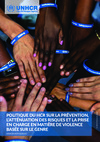
UNHCR Policy on the Prevention of, Risk Mitigation and Response to Gender-based Violence, 2020 (PDF) - French
16 Mar 2021 This Policy consolidates the significant progress made by UNHCR and partners to prevent, mitigate and respond to Gender-based Violence. The policy covers all UNHCR Operations and all people of concern. It applies to all stages of the programme cycle, throughout the displacement continuum, in emergencies and protracted displacement settings, as well as in mixed flows and onward movements, and situations of statelessness. -
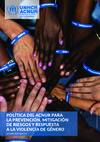
UNHCR Policy on the Prevention of, Risk Mitigation and Response to Gender-based Violence, 2020 (PDF) - Spanish
16 Mar 2021 This Policy consolidates the significant progress made by UNHCR and partners to prevent, mitigate and respond to Gender-based Violence. The policy covers all UNHCR Operations and all people of concern. It applies to all stages of the programme cycle, throughout the displacement continuum, in emergencies and protracted displacement settings, as well as in mixed flows and onward movements, and situations of statelessness. -
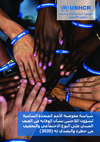
UNHCR Policy on the Prevention of, Risk Mitigation and Response to Gender-based Violence, 2020 (PDF) - Arabic
16 Mar 2021 This Policy consolidates the significant progress made by UNHCR and partners to prevent, mitigate and respond to Gender-based Violence. The policy covers all UNHCR Operations and all people of concern. It applies to all stages of the programme cycle, throughout the displacement continuum, in emergencies and protracted displacement settings, as well as in mixed flows and onward movements, and situations of statelessness. -

Aid agencies appeal for funding to support over 2 million South Sudanese refugees in dire need
16 Mar 2021 -

UNHCR - Maternal death review guidance and data collection form, 2020 (PDF)
15 Mar 2021 UNHCR is promoting the systematic review of maternal deaths to learn from those situations, improve the quality of safe motherhood programming and prevent future maternal and neonatal morbidity and mortality. Further, the reviews help to identify actions that prevent future shortcomings in access to quality essential maternal and neonatal health services. This form and the accompanying guide are used to systematically assess and document maternal deaths and develop action plans. -

Inside Syria, millions face destitution after a decade of pain
15 Mar 2021 Compounding crises increase misery for Syrian families trying to pick up the pieces after ten years of conflict, including 6.7 million people still displaced inside the country. -

A decade on, Syrian refugees mired in 'silent war' for survival
12 Mar 2021 As the Syria crisis reaches the 10-year mark, millions of refugees face unprecedented hardship due to rising poverty, lack of opportunity and the impact of COVID-19. -

A decade of death, destruction and displacement must not sap our solidarity with Syrians
12 Mar 2021 Statement attributable to Filippo Grandi, UN High Commissioner for Refugees

